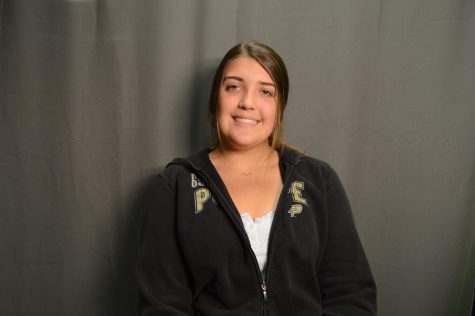Common app, common sense: A comprehensive guide to college applications
Photo by Santi Leon Torres
Illustration shows Fehribach assisting a student with CommonApp. This is students during their senior meetings.
September 23, 2022
November 1st is approaching and students find themselves hunched over a pile of paper hours into the night, as they struggle to complete the required paperwork to apply for their choice universities.. As that big November 1st deadline creeps up on them, so does an immense amount of pressure. Back to school season can be hard enough, but with the added stress of college applications, it may begin to seem impossible. Luckily, they have a guide through their college application experience.
The college application process can actually begin at any point in your high school career. Many students like to look at schools that would work for them as early as freshman year. Senior Adalynne Robbins has noticed the importance of playing to your strengths when it comes to looking for potential Universities.
“I’ve ruled out Purdue because Purdue is very STEM-based and I’m looking for a more creative, arts-based school,” Robbins said.
Noblesville students have access to a variety of resources to help with their applications, specifically the essay portion. Senior Laiken Charpie began his college application process during his junior year English class.
“It initially started my junior year, just writing my essay in class, and then from there, I took that essay, and I added it to the Common App,” Charpie said.
Charpie also notes the importance of using the resources available to students. According to him, there is a way for students to raise their grade point average.
“You can definitely take advantage of credit recovery. I just retook Spanish II on Edmentum. It should boost my GPA, which should help me get into college,” Charpie said.
According to NHS counselor Cozette Feribach, what might be the most difficult for students is the essay. Fehribach reminds them that the essay is not a place to be humble.
“It’s a place where students are supposed to brag,” Fehribach said. “Remember, this essay is the first and only impression the school will get of you, so make it count.”
Feribach’s strategy for a well written essay involves a four paragraph arc. The first paragraph is your “attention getter” and thesis. Second is your low point. Feribach notices that a common mistake amongst many seniors is spending too much time in the second paragraph.
“Often students spend about 75% of their essay there, when it should only be about 20%,” Feribach said.
In the third paragraph, you will show how you grew from this low point. The fourth paragraph is how you would use this new-found growth in a college setting.
Fehribach believes that reaching out to external sources is a crucial part of the college application process. Feribach shared their experience with having others review your essay.
“It can be really nerve-racking to take constructive criticism on something that’s so personal, but my essays became infinitely better whenever I let people edit them,” Feribach said.





